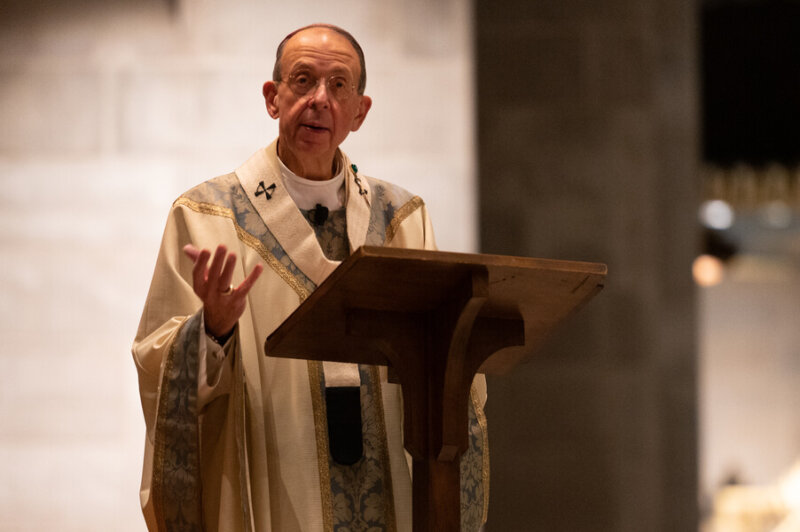February 21, 2023
Dear Friends in Christ,
With the arrival of Ash Wednesday, we begin the celebration of the Season of Lent. As usual, we will hear Jesus tell us that when we give alms, pray and fast, we should do so not to win the acclaim of others, but to present ourselves humbly before our God. As usual, ashes will be placed on our foreheads. We will hear the words drawn from Genesis 3:19 and Psalm 103: “Remember, you are dust and unto dust you will return.” These words not only remind us of the shortness of life but also of our origins, for as we read in Genesis, God formed Adam out of the dust of the ground.
Lent is therefore a season that brings us face to face with the fundamentals of our life. How do we stand before God? Are we living our faith, and if so, what motivates our religious practice? What is the origin and goal of life? These are questions asked by catechumens who enter the Church at Easter, by candidates who seek to complete their initiation into the Church’s life, and by lifelong Christians seeking authenticity. Lent is the season of fundamentals.
After all, shouldn’t we be generous to those in need all year long? Shouldn’t we continually discipline our intake of food and drink? And isn’t prayer supposed to be a constant part of our lives? The answer is, of course, yes. Lent is the time to ask if we are actually doing those things and to learn anew what they mean.
Take almsgiving. This has to do with sharing our goods with those in need, but it has an even more fundamental meaning, namely, a mindset toward others that is merciful and forgiving. Does our generosity of spirit flow from ourselves? Or is it not an extension of the mercy God has lavished upon us? If indeed we stand in need of God’s mercy, we should not trumpet our deeds of mercy. We should do them quietly and as a way of thanking God for his mercy to us.
What about prayer? Jesus told his disciples to “pray always.” Do we pray? If so, what is the quality of our prayer? Jesus advises us to withdraw into the intimacy of our souls and there stand before an audience of one, namely, his heavenly Father. In authentic prayer, we invite God to speak to us, heart to heart. Prayer involves listening and allowing God to reveal us to ourselves. Prayer without pretense. Prayer without excuses. Prayer with trust in God’s mercy. As Psalm 51 tells us, “a contrite, humbled heart, O God, you will not scorn.”
Fasting is also part of Lent. But why do we deprive ourselves of food and drink? Why do we discipline our bodies? Just to be clear, Lent is not a weight-loss program but a season for self-emptying. Since body and soul are intimately connected, fasting can be a powerful, embodied symbol of self-emptying – emptying ourselves of all forms of sinful self-centeredness that renders us oblivious to God’s love and to the needs of others.
Lent is often portrayed as a dreary season, but the Church offers it to us as a joyful season. In calling us back to our origins, Lent propels us forward to share more fully in Christ’s redeeming love. As we stand unvarnished before God, we discover the true depth of his love for us. As we empty ourselves of all pretensions, we open ourselves anew to the Holy Spirit and his gifts that enable us to know, love and follow Christ; to be active members of his Body, the Church; sharing as never before in his saving death and resurrection.
Mercy-mindedness, honest-to-God prayer, and penitential discipline will lead us into the heart of the Church’s sacramental life. We will see new beauty, meaning and life in the Eucharist. We will revel in God’s mercy in the Sacrament of Reconciliation. We will rejoice as sisters and brothers from every corner of the Archdiocese are born anew in baptism and become one with us at the Eucharistic table.
May Lent be a truly joyful season for you and your loved ones.
With kind personal regards, I remain
Faithfully in Christ,
Most Reverend William E. Lori
Archbishop of Baltimore
To ready the Archbishop’s message in Spanish, click here


